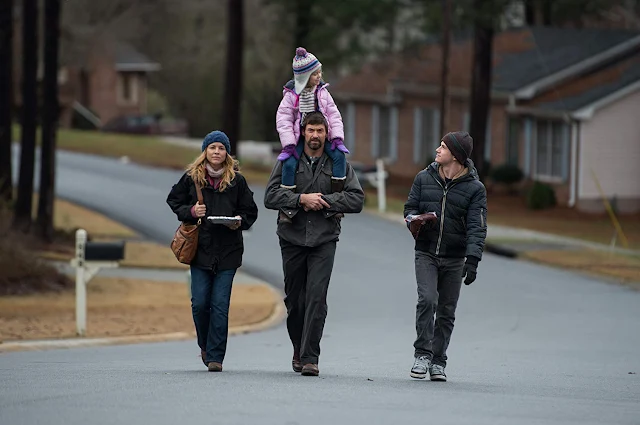 |
| George Clooney, Natascha McElhone, Jeremy Davies, Viola Davis in Solaris |
Chris Kelvin: George Clooney
Rheya: Natascha McElhone
Gordon: Viola Davis
Snow: Jeremy Davies
Gibarian: Ulrich Tukur
Director: Steven Soderbergh
Screenplay: Steven Soderbergh
Based on the novel by Stanislaw Lem
Cinematography: Steven Soderberg (as Peter Andrews)
Production design: Philip Messina
Music: Cliff Martinez
Film editing: Steven Soderbergh (as Mary Ann Bernard)
The self -- or the soul, if you will -- is made of memories. Which is why disorders of memory, like Alzheimer's, terrify us so: Who are we if we don't have our memories? Relationships, too, are made by memories -- or marred by the absence of shared ones, as Andrew Haigh demonstrated recently in
45 Years (2015). But what are you if you are made of someone else's memories? That's the provocative premise explored in this version of Stanslaw Lem's novel
Solaris, directed, written, photographed, and edited by Steven Soderbergh. When it was released, it was widely regarded by
some prestigious critics as too slow, as "
ponderous and dreadful," as "opaque, self-indulgent, and just plain goofy." I don't know if the critical reaction has shifted over the past 15 years, but I think Soderbergh's
Solaris is a worthy companion to the more critically lauded
Solaris by Andrei Tarkovsky (1972). They attempt different things: Soderbergh a meditation on love, loss, and identity framed in the conventions of the sci-fi film, Tarkovsky a personal exploration of humankind's alienation from nature. If, as I tend to do, you prefer deeply personal filmmaking to Hollywood glossiness, you may prefer Tarkovsky, but I honor what Soderbergh -- a personal filmmaker working with Hollywood stars and conventions -- has achieved. The presence of George Clooney does tend to skew the film a bit, partly because Clooney, like all movie stars, has a fixed persona, and when he works against his type -- the handsome, wisecracking, invincible leading man -- people tend to feel their expectations have been frustrated and become dismissive. Would Soderbergh's
Solaris have been critically better received if he had been able to cast his original choice for the role, the chameleonic Daniel Day-Lewis? Perhaps, but Clooney gives the role of Kelvin his considerable all, and I think it's one of his best performances. He's well supported by Natascha McElhone as Rheya, whose increasing horror at discovering she's not human but instead a being crafted out of Kelvin's memories of his dead wife is touchingly presented, and by Viola Davis as Gordon, who masks her terrors with a facade of toughness. We've seen Jeremy Davies do twitchy perhaps once too often, but it works here against the more controlled personae presented by Clooney and Davis's characters. Soderbergh also wisely keeps the identification of what (or who) Solaris is -- a planet or some kind of galactic sentient entity? -- one of the film's unsolved mysteries. To go too far into explanations would have sent the film into routine science-fiction territory. Cliff Martinez's musical score neatly supports the otherworldliness of the film.
Cinemax































